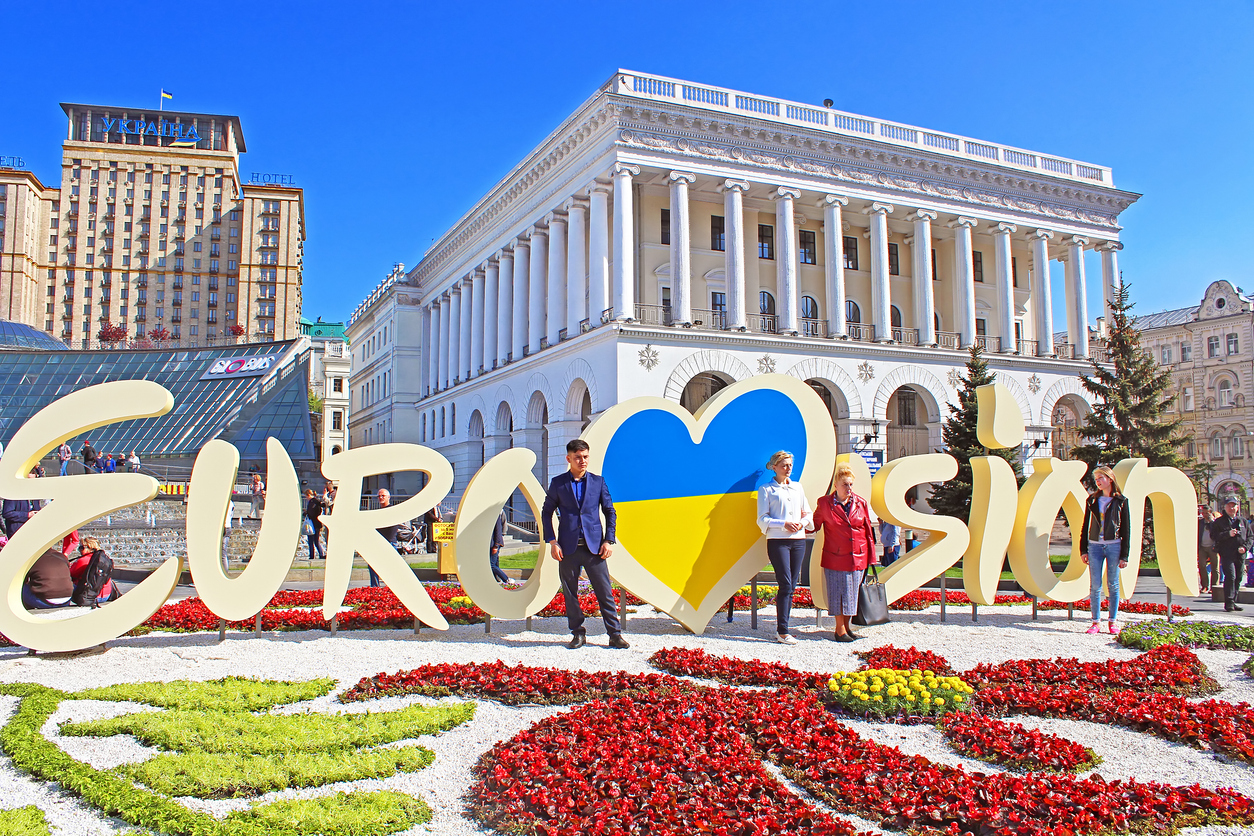Learn from Eurovision 2024’s brand blunders
This year’s song contest was chaotic to say the least.

Chantal Riley is managing director at Midnight Fox.
As a Eurovision fan, I am used to the disappointment associated post-event when you realise you have another year to wait, or potentially your favourite didn’t win this year. However, watching this year’s contest, I was less dazzled by performances and more aghast at the behind-the-scenes spectacle that is still playing out.
For those of you who have no idea what I am talking about, Eurovision is not just a Netflix movie but a yearly song contest spectacular, where countries from Europe (including Australia, don’t ask) compete by showcasing their original songs and performances. It’s a colourful and vibrant extravaganza that brings together diverse cultures, musical styles, and languages on one stage (or at least that’s what is supposed to do). Viewers from around the world tune in to watch the performances, vote for their favourite acts and celebrate the joy of music and unity. With its iconic stage productions, fierce competition and passionate fanbase, Eurovision has become one of the most anticipated and widely watched events in the world of entertainment.
And then 2024 happened. From communication missteps to organisational blunders, several incidents from the event serve as cautionary tales for PR practitioners. By examining these mistakes, we can uncover important lessons that can help brands avoid similar pitfalls and safeguard their reputation in the face of adversity.
- Neglecting crisis preparedness
One of the most glaring PR blunders at Eurovision 2024 was the apparent lack of crisis preparedness demonstrated by the European Broadcasting Union (EBU), which owns and operates Eurovision. From refraining to properly comment on the first disqualification in its 68-year history (don’t get me started on this one, I am still raging *sung to the tune of Austria’s entry this year*), to ignoring calls to stick to previous years’ principles and ban a certain country from participating, to failing to address contestant complaints both pre- and post-show, the EBU saying nothing did damage. This clear lack of preparedness not only exacerbated the problems but also undermined confidence in the EBU’s ability to manage crises. I question whether or not the EBU had any PR or communications plans or teams in place. If they did, I would fire them for incompetency.
Lesson: PR practitioners should prioritise crisis preparedness, ensuring that they have robust plans and protocols in place to address unforeseen circumstances promptly and effectively.
- Blaming others
Another common PR mistake witnessed at Eurovision 2024 was the tendency to deflect blame onto others when things went wrong, or simply not taking any accountability at all. Instead of taking complaints from contestants seriously, organisers were quick to hold what they refer to as “crisis meetings,” but these lacked any response to and correction on the complaints, often citing the matter was out of their hands. Uh, you’re in charge of the entire event – how is anything out of your hands? This approach not only eroded trust and credibility but also detracted from efforts to resolve the issues at hand.
Lesson: PR professionals should remember that accountability is key in crisis communication, and taking ownership of mistakes is essential for rebuilding trust and maintaining reputation.
- Inconsistent messaging:
Eurovision’s slogan is “United by Music.” The reality turned out very different this weekend. Contradictory statements, mixed signals, and disjointed communication efforts, all contributed to confusion and undermined the overall effectiveness of any communication efforts. No one was united, in anything, at all…except maybe confusion.
Lesson: Consistency is paramount in PR, and organisations must ensure that their messaging is coherent and aligned across all channels and platforms. Failure to do so can lead to mistrust, scepticism, and reputational damage.
- Ignoring feedback and silencing critics
Despite the fervent passion of Eurovision fans, EBU was quick to dismiss feedback and criticism from viewers and stakeholders in the run up to this year’s finals. This resulted in calls to boycott, mass protests outside the venue in Sweden, certain media having their passes revoked, and even the censorship of participants as the EBU seemed too afraid about what contestants would say “out of turn.”
Lesson: Ignoring constructive feedback and choosing to silence critics only serves to alienate audiences and perpetuate negative perceptions. PR professionals should recognise the value of listening to their audience and engaging in meaningful dialogue, even when faced with criticism. Embracing feedback as an opportunity for improvement can help organisations build stronger connections with their stakeholders and enhance their brand reputation over time.\
- Failing to adapt and read the room:
Perhaps the most glaring PR lesson from Eurovision 2024 was the consequences of failing to adapt to changing circumstances. Case in point was the ode to Martin Österdahl, which given the climate at the time could’ve easily been cut from the show’s running order, but was instead met with the boos it deserved (and yes, you could hear them over the anti-booing technology). Read the room! By the time the finals aired, the EBU was in deep trouble and instead of adapting, they railroaded ahead as if nothing was wrong.
Lesson: In today’s fast-paced and dynamic media landscape, adaptability is crucial for success in PR. Organisations must be willing to embrace change, experiment with new approaches, and pivot their strategies as needed to stay relevant and resilient in the face of uncertainty.
The story of Eurovision 2024 is one of a divided Europe. For a contest that claims to be apolitical, the EBU’s behaviour this weekend would suggest otherwise. For many fans, the contest’s long-held insistence on so-called political neutrality and fairness to all –- ironically casting itself in the figurative role of Switzerland — is no longer convincing, or even possible.
Sadly, the EBU has yet to own any of its issues and mistakes as of Monday afternoon, and so further crises seem likely. Many contestants have gone public with their experiences (one calling it traumatic and wishing they never went through at the semi-finals) and several country broadcasters threatening legal action for the way in which their country contestants were treated.
But the positive takeaway is that PR and communication professionals can learn a lot of what not to do thanks to Eurovision 2024. By examining the mistakes made during the event, PR practitioners can gain valuable insights and ensure they do better. By heeding this cautionary tale and prioritising best practices in communication and reputation management, brands can avoid similar missteps and position themselves for success in an ever-evolving media landscape.






